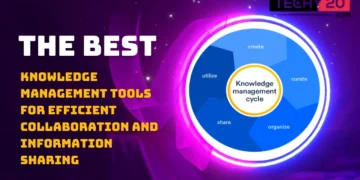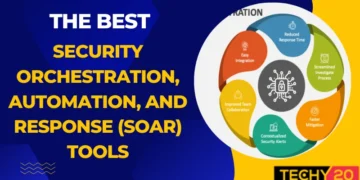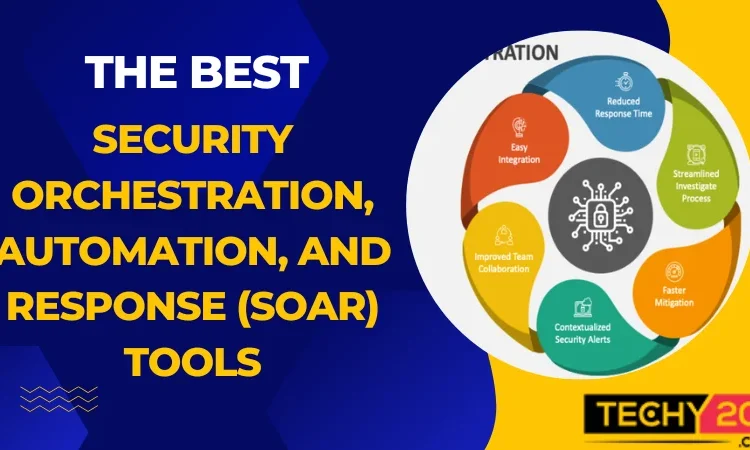The IT sector has drastically changed and grown over the past ten years. The IT industry is currently one of the most promising job markets in the world, driven by rapidly evolving new-age technologies. A huge percentage of young people are gravitating toward IT employment for a variety of reasons, including high annual income packages, in-demand work responsibilities, and numerous opportunities to leave a lasting impression. We’ve compiled a list of the best technical programmes to take in order to work in the IT industry for those tech-savvy individuals. The best part about pursuing an IT career is that IT skills are in high demand across many sectors, including IT or ITeS, retail, BFSI, manufacturing, education, energy, and healthcare, to name a few. Aspirants nowadays, however, want much more than just theoretical knowledge; they also require strong technical abilities because IT roles are evolving rapidly. It makes sense that there is such a huge demand for technical education programmes to enter the IT workforce today. Make sure to read all the way through if you’re curious about which technical programmes are suitable for hot IT employment roles.
1. Software Development
Software development includes the construction, testing, and upkeep of software frameworks, tools, and applications. It is a crucial component of IT infrastructure and is essential to the success of companies of all sizes and forms. Innovative software solutions that are suited to particular customer and business needs are the main emphasis of software development. An organization’s competitive edge can be increased by the use of a software tool or framework that increases staff productivity, streamlines corporate processes, increases ROI, accelerates sales, and boosts ROI. One of the most popular paths to take to land a job in IT is taking software development courses.

2. Web Developers
The term “web development” broadly refers to the activities involved in creating websites for hosting on the internet or intranet. Among other things, the web development process entails setting up network security as well as web design and content development, client-side and server-side scripting. Web development is a comprehensive term that refers to all the tasks, modifications, and activities needed to create, manage, and keep a website operating at its best in terms of speed, usability, and performance. In order to create websites, most web developers employ JavaScript, Cascading Style Sheets, and HTML. You can begin right away, and after a few weeks or months of research and practise, you’ll be able to create a website with some proficiency.

3. Network Architect
An expert who manages communication networks, such as LANs, WANs, and intranets, is referred to as a “network architect.” The creation, upkeep, and modification of the hardware, software, and virtualized elements of an IP network are all crucially dependent on them. These experts must be thoroughly knowledgeable about the technical requirements of the network. Both smaller-scale networks and larger-scale communication systems are used by them in their work. When network vulnerabilities occur, they should constantly be prepared to plan and implement security countermeasures, keeping in mind the organization’s security concerns.

4. Data Science
The term “data science” has become very common in the business sector, and for good reason. Data science technologies with applications in many different industries include artificial intelligence, deep learning, machine learning, and natural language processing. There is a tremendous need for data scientists who are proficient in these technologies because they are so widely used. Unfortunately, there is significantly more demand than supply for data science personnel. Consequently, a large portion of the vacant posts for data scientists remain unfilled. Data science is one of the most well-liked courses for entering the IT industry.

5. Analyst in Information Security
Information security professionals keep tabs on their company’s networks and investigate security violations when they do occur. Use software like firewalls and data encryption technologies, and keep it up to date, to protect sensitive data. Look for flaws in the computer and network infrastructure. Certification in Security+ is the prerequisite for employment as an information security analyst. It is a foundational certification that is unbiased toward vendors and attests to knowledge of risk management and network security essentials.

6. System Analyst
A system analyst, also known as a computer systems analyst, is an IT specialist who uses information systems to analyse problems, discuss and comprehend user desires, and put desired goals into action.As a systems analyst, you will use computers and related systems to create new IT solutions, change, extend, or adapt current systems, and integrate new features or upgrades in order to increase corporate productivity and efficiency.
7. Cloud Architect
A company’s cloud computing system is supervised by cloud architects, who are specialists in information technology (IT). This entails developing the technologies needed to manage cloud storage as well as designing the cloud application frameworks and approval processes. A cloud system administrator or developer is another name for a cloud system administrator. Due to the importance and expansion of cloud computing, cloud architects frequently experience excellent job security. Many industries, including technology, business, finance, education, health, and government, are in great need of and highly value their skills.

8. Computer Scientist
Computer scientists handle issues and plan for the future on the job by utilising technology. Additionally, they develop apps by writing and programming software. However, they are primarily concerned with validating and creating models for user-computer or user-device interaction. Excellent math skills, a thorough understanding of computers and technology, the capacity to analyse issues and identify their root causes, a methodical approach to work and problem solving, and a strong capacity for problem anticipation and diagnosis are all essential traits for computer scientists.

9. Machine Learning
In both the IT and data science communities, machine learning enjoys a sizable fan base. Machine learning’s USP is its ability to aid in the development of intelligent machines that can learn from experience. ML systems are typically trained to complete certain tasks in particular circumstances using enormous volumes of data that are input into the system. One of the most popular technical degrees for obtaining an IT position is one in machine learning.

10. Blockchain
By designing systems to record and preserve blockchain data in a manner that precludes modifications or hacks, blockchain engineers enable safe digital transactions. They create user-friendly application interfaces and features, as well as support client and server-side programmes. They also develop safe blockchain technology. Analysts of the technology examine the data in and use of these ledgers to evaluate the performance of the blockchain, identify areas for development, and create plans for enacting changes.

11. Aeronautical Engineering Technology
The study, creation, and production of machines capable of flight, as well as the methods used to operate aeroplanes, are all covered under the science of aeronautical engineering. This course teaches engineers how to design, build, analyse, and test spacecraft, missiles, and planes for use in either commercial or military operations. While an experienced aeronautical engineer with 10–20 years of experience earns an average pay of 14.9 lakhs per year, a mid-career engineer with 4–9 years of experience makes an average compensation of 4.2 lakhs per year.

12. Automobile Engineering
Automobile design, production, and maintenance fall under the purview of this engineering subject. Automobile engineering encompasses a wide range of sub-disciplines, from designing the automobiles to manufacturing their parts to putting them all together and safety testing them. The fast-paced and very creative field of automobile engineering is available. Engineers tend to favour it as one of their top professions. Job opportunities for engineers working in the automotive industry are growing due to the quick expansion of auto components in the automotive industry.

13. BTech Biotechnology
This four-year undergraduate degree programme covers biological and chemical engineering applications. The course primarily blends chemical engineering with applied biology in the study of the surroundings of living things. Students are particularly encouraged to pursue graduate-level coursework in biotechnology, biomedical sciences, biology, bioprocess engineering, etc. because these fields are very research-intensive, broad, and diverse.

14. BTech-Civil Engineering
A civil engineer contributes to the construction and upkeep of infrastructure, such as buildings, bridges, roads, and water supplies. By building the networks and infrastructure necessary to enable transit, they assist in moving people, cargo, water, and electricity between locations. 04-May-2022 Civil engineering is, in general, a difficult and varied discipline. However, in comparison to other important departments in Indian institutions, it is thought to be among the simpler but also less challenging branches. The majority of CE students believe that the only difficult part of CE is engineering drawing.

15. BTech-Computer Science and Engineering
An undergraduate degree programme called BTech CSE lasts four years and covers both theoretical and practical knowledge of computer hardware and software. In addition to covering a wide range of topics, this course emphasises the fundamentals of computer programming and networking. Engineering Courses in Their Entirety: science courses in their entiretyThe primary distinction between these two fields is that, whereas computer science deals with the research that makes these applications possible, information technology deals with the actual application of computing technology to processes that take place in the real world.

16. Electrical and Electronics Engineering
Tech in Electrical and Electronics Engineering is a four-year undergraduate curriculum that imparts essential information in key fields such as control systems, communications, radio frequency design, signal processing, microelectronics, microprocessors, power generation, and electrical machines. There are literally thousands of work opportunities in the field of electrical engineering, making it a potential career choice for young professionals. You can work in any area that needs power, from public agencies to private IT companies.

17. Mechanical Engineering Technology
Obtaining a BTech in mechanical engineering requires four years of study. For the purpose of becoming mechanical engineers, this course trains the students. This course’s goal is to equip students with the knowledge and skills necessary to use mechanical engineering concepts in the creation, production, and upkeep of mechanical systems. In the government sector, there is also considerable opportunity for BTech mechanical engineering graduates. Candidates can get hired for positions in reputable companies like BHEL, SAIL, NTPC, DRDO, etc. by passing entrance exams like AII JEE, GATE, etc.

18. Electronics and Communication Technology
Through classes like Analog & Digital Communications, Digital Logic & Circuits, Coding & Information Theory, etc., the BTech ECE programme gives students a solid foundation in the fundamentals of electronics and communications engineering. The study, creation, testing, and production of electronic devices used in various systems are all included in electronics and communications engineering. Engineers in electronics and communications regularly conceptualise and oversee the construction of broadcast and communications networks.

19. Management
Although not a technical course per se, project management is a pivotal component of a company’s IT infrastructure. IT is not confined to developing, testing, and deploying software products and services; it is also about offering timely deliveries, managing the products and services, and offering customer support. This is where project management enters the scene. A project manager’s role in an IT firm is to plan the project outlines, determine the budget, oversee the production operations, and ensure that clients get all the deliverables on time. In other words, project managers take on supervisory and managerial roles in an organization.

20. MBA
A Master of Business Administration programme is created to disseminate academic, practical, and complete understanding about an organization’s business management and administration. Marketing, finance, accounting, human resources, business communication, business law, business ethics, managerial economics, operations management, and many other specialties are available in MBA programmes. The USP of MBA programmes is that they prepare students to apply classroom learning to real-world projects and case studies. This aids in the development of managerial and business skills that may be used in a variety of fields. MBA programmes can be pursued full-time or through correspondence.





















